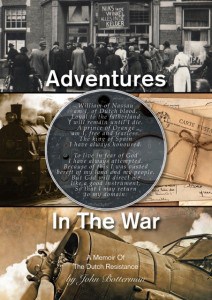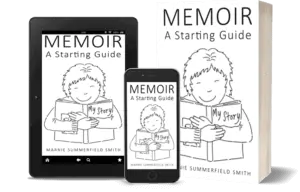
Chapter One / Early Years
WHEN I was young, Saturday was my favourite day, a day when I was truly happy and carefree. This was because Saturday was market day and my mother and I would go there together. We’d enter at the same spot each week, the part where all the fruit and vegetable stalls were. My mother would buy a large bag of tomatoes which we ate as we walked, dipping our hands into the paper for the sweet, juicy fruits.
We only ever bought one other thing at the market – a cow’s udder. This we would buy from a take away shop, a bit like the British fish and chip shop. By the time we got to the cow udder shop, our delicious tomatoes were gone. We never managed to save any to take home. The cow udder, which cost between 10 and 15p in today’s money, was heavy and would be carried home in a basket. It was all my mother could carry but it was the only thing we could afford anyway. At home, mother would boil or fry the udder, then slice it and serve it with bread.
My mother and I lived on one Guilder or 100 cents each week, which she got from doing odd jobs. At the time I didn’t feel as if I was going without. It’s only since having children that I realised what a struggle it was for her.
My father had never been interested in me or my mother. They’d got pregnant and his old-fashioned mother forced him to marry but it didn’t last and he went to live with another woman and had children with her. My father was a master butcher and he earned well and drank well. Or rather he didn’t. His drinking would lead to my mother being chased around with knives. I think this made me a nervous child.
I was about nine or ten when my father finally left. We had been a reasonably well off family and suddenly became very poor. I was taken into care and sent to a farm to be boosted up. The stress had really taken its toll on me. I’m still quite a nervous person and outside the house I start to feel ill and don’t always eat. I got into a habit of biting the skin on my hands which continued for some years.
When we were really desperate for food, my mother and I would go to my father’s home and kneel on the pavement outside, praying that he would look out, see us and throw down some money, which he occasionally did – 10p or 50p if we were lucky. I was used to it. There was no other life.
I was born on November 9, 1924 in Rotterdam, the second largest city in the Netherlands. I was given the name Johannes Wilhelmus Hendrick Botterman after my father’s father. It was and is a mouthful, so I have always been known as Jan, or here in England, as John.
My mother was called Maria Van D’Avoird. She and I lived in a district of south Rotterdam called Crooswijk, which at that time was known for being home to marine barracks, abattoirs and the Heineken brewery.
Our home was a flat above a sweet shop. I could never afford anything from the shop but I was quite happy. In the sitting room of the flat was a large corner window and I would sit there for hours watching the people and trams going by. I could also see the nearby cemetery which was very large, or so it seemed to me when I was small.
My mother was home as much as she could be, although she did have to go to work. I remember fondly the soup that she made. Beef was my favourite and to this day I love soup of any kind. I felt very spoiled. I was definitely my mother’s number one priority.
In the evenings mother and I had to occupy ourselves. We had no radio or television. Mother would sew and knit, making socks and jumpers to sell and for me to wear no doubt. I would read. I got six or seven books at a time from the library and loved adventure stories. Cowboys and Indians in particular. We had a small coal fire and were always warm. The coal shed was under the roof of the building. Another family lived above us but we didn’t see them much. When I got older it was my job to take the coal up to the roof and bring it down again when it was needed.
Aside from the sitting room, we had a small kitchen, a double bedroom which was my mother’s, and my single room, which had just a bed and a chair in it. I didn’t have any toys. I don’t remember my birthday being celebrated at all. I suppose my mother didn’t have money for things like that.
We shared our toilet with the people who lived in the other flats. We did have a tin bath. If we wanted to use it, I would be sent to a nearby shop that sold coal, wood and hot water in containers. I would carry the water home and mother would pour it into the tub. We’d share the bath, mother first. I’d hop in afterwards. If we could afford a treat, we would go to the bath house on a Saturday, and pay to have a shower there. We had to take our own soap.
I suppose that we were very poor. I didn’t know it at the time but during my growing up years, Rotterdam was in the grip of the Great Depression of 1929. The Dutch economy was affected for longer than other European countries because of the government’s strict fiscal policies. The depression caused large scale unemployment and poverty and later, social unrest. I knew nothing about this of course.
I was born a Roman Catholic and went to church every Sunday where I sang in the choir. I enjoyed it, mainly because it was a chance for me to mix with other children, which apart from school was a rare occurrence for me. My mother was very protective, overly so really, and I didn’t get much freedom to go out and play. I think I was a bit of a sissy. School and the church choir were my main opportunities to meet other children. I was an only child. My mother’s family didn’t want much to do with her. They were terrible in that way, an awful family. I had lots of cousins who I never met. But my Mum had a half-sister called Anne, I knew of an aunt called Jo and Uncle Richard, a sailor who was in England during the war. The one cousin I knew of was Auntie Jo’s son, Dickie. I was nicknamed Rat-Kop, because I was a big boy and Dickie was called Mouse-Kop because he was younger than me and much smaller.
We never saw my mother’s mother. She didn’t approve of my mother’s situation, being alone with a child, but what could we do?
Of course my school was Roman Catholic too. The school buildings were set out in a square shape and the priests lived on site.
I remember one time I had been naughty and was sent from my classroom into the hall. Eventually I got bored and wandered outside and along to where the priests lived. I looked down into the basement window of one of the buildings and saw a priest lying on top of one of the school maids on a table. I ran back to my class screaming. I thought the priest was killing her.
“Miss!” I shouted to the teacher. “The father! He’s killing one of the maids!”
A look of horror passed across my teacher’s face. She calmed herself.
“What do you mean?” she said.
“Down in the basement. They were on a table. He was on top of her.”
“That’s enough.”
“Shouldn’t we do something?”
The teacher stared at me.
“It’s none of your business,” she said. “And you shouldn’t have been looking in the cellar. It’s very naughty to be so curious.”
I was already a bit of an outcast at school because my father was a Protestant. I never felt that I belonged. But I became even more of an outcast after that episode. I didn’t understand why until many years later.
Our teacher was a young woman and we could all tell that one of the young male teachers fancied her. We could also tell that his feelings weren’t reciprocated. One day after lunch, we came into the classroom to find our teacher crying.
“What happened, Miss?” we asked her but at first she wouldn’t answer. We asked her again, several times. Eventually she took her hands away from her face which was red from crying and embarrassment.
“He tried to kiss me,” she said.
We knew who she was referring to and were furious. About 25 of us boys stormed into the classroom next door and kicked the man for making our pretty young teacher cry.
At the age of 11, because I wasn’t very academic but passed the entrance exam, I went to a technical high school. I enjoyed studying engineering though and felt that college was starting to give me more freedom. Around this time my mother married a ship’s captain. Looking back, I think she did it so that she had money to feed me. Like I said, she was a mother 100 per cent. The sailor didn’t like me at all so the marriage only lasted a few months, To be fair, he was probably only interested in getting my mother into bed. She did meet someone else, he was connected with the market somehow but my memory is hazy on this. I think he was married and lived quite far away from us.
I did meet my father again, in a pub. I was furious at how he had treated my mother and wanted to fight him although I didn’t as I was held back by some Dutch sailors. He stayed with us for a short while but was taken by the Germans to Germany and put to work in Hamburg. My mother told me she thought that he was killed by a bomb while hiding in an air-raid shelter in Hamburg though she could never be 100 per cent sure. Later when I briefly worked for Safeway’s as a transport manager a German colleague tried to find out more about my father. He’d been ‘written in’ on a document in Hamburg town hall as having arrived in Germany but because he died there he was never ‘written out’. I suppose as it would have been an incendiary bomb that killed him, his remains were burnt and there was no way to identify him.
I left school aged 15 in 1939 and went to an aircraft factory where I became an apprentice in metal work. I enjoyed work there and started to feel as if I might be gaining some independence.
To buy this book as a paperback contact Your Memoir
